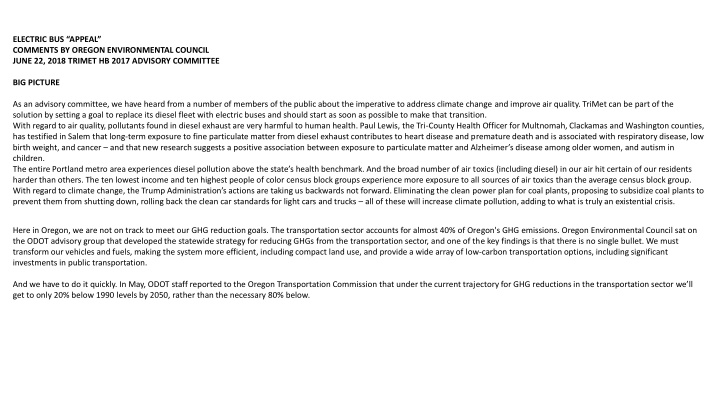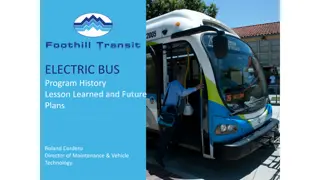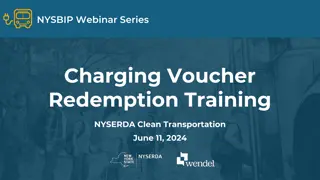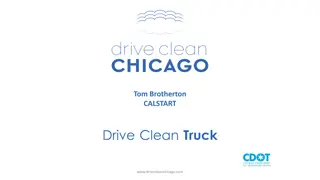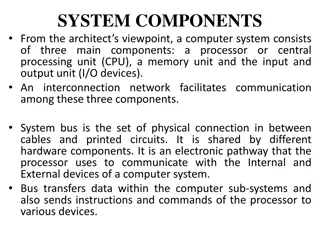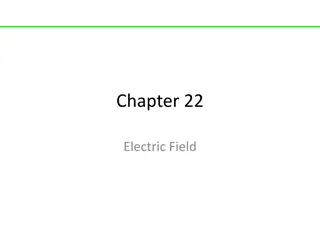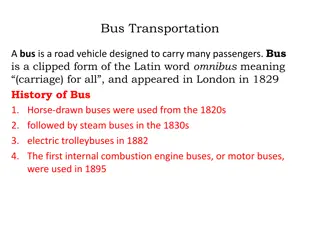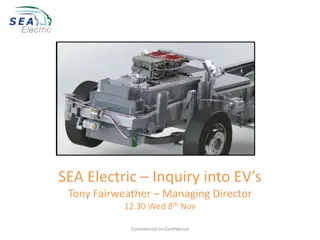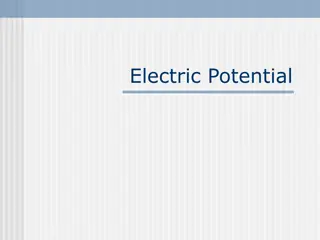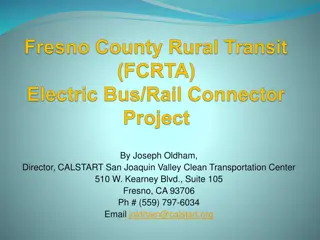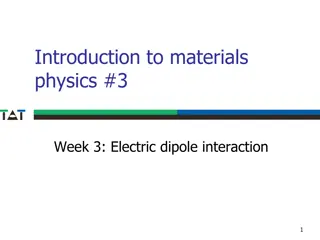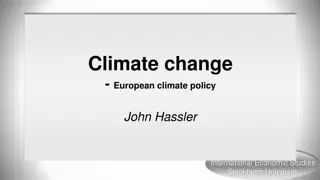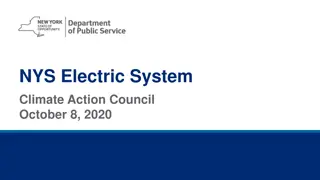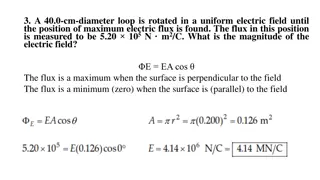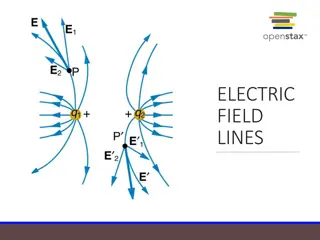TriMet's Transition to Electric Buses for Climate Action
TriMet, Oregon's primary transit agency, faces calls to replace its diesel fleet with electric buses to combat climate change and improve air quality. The shift is vital due to the harmful effects of diesel exhaust on human health and the urgent need to reduce greenhouse gas emissions. Other transit agencies are already leading the way by committing to electric buses, and legislative efforts such as HB 2017 aim to support sustainable transportation options.
Download Presentation

Please find below an Image/Link to download the presentation.
The content on the website is provided AS IS for your information and personal use only. It may not be sold, licensed, or shared on other websites without obtaining consent from the author.If you encounter any issues during the download, it is possible that the publisher has removed the file from their server.
You are allowed to download the files provided on this website for personal or commercial use, subject to the condition that they are used lawfully. All files are the property of their respective owners.
The content on the website is provided AS IS for your information and personal use only. It may not be sold, licensed, or shared on other websites without obtaining consent from the author.
E N D
Presentation Transcript
ELECTRIC BUS APPEAL COMMENTS BY OREGON ENVIRONMENTAL COUNCIL JUNE 22, 2018 TRIMET HB 2017 ADVISORY COMMITTEE BIG PICTURE As an advisory committee, we have heard from a number of members of the public about the imperative to address climate change and improve air quality. TriMet can be part of the solution by setting a goal to replace its diesel fleet with electric buses and should start as soon as possible to make that transition. With regard to air quality, pollutants found in diesel exhaust are very harmful to human health. Paul Lewis, the Tri-County Health Officer for Multnomah, Clackamas and Washington counties, has testified in Salem that long-term exposure to fine particulate matter from diesel exhaust contributes to heart disease and premature death and is associated with respiratory disease, low birth weight, and cancer and that new research suggests a positive association between exposure to particulate matter and Alzheimer s disease among older women, and autism in children. The entire Portland metro area experiences diesel pollution above the state s health benchmark. And the broad number of air toxics (including diesel) in our air hit certain of our residents harder than others. The ten lowest income and ten highest people of color census block groups experience more exposure to all sources of air toxics than the average census block group. With regard to climate change, the Trump Administration s actions are taking us backwards not forward. Eliminating the clean power plan for coal plants, proposing to subsidize coal plants to prevent them from shutting down, rolling back the clean car standards for light cars and trucks all of these will increase climate pollution, adding to what is truly an existential crisis. Here in Oregon, we are not on track to meet our GHG reduction goals. The transportation sector accounts for almost 40% of Oregon's GHG emissions. Oregon Environmental Council sat on the ODOT advisory group that developed the statewide strategy for reducing GHGs from the transportation sector, and one of the key findings is that there is no single bullet. We must transform our vehicles and fuels, making the system more efficient, including compact land use, and provide a wide array of low-carbon transportation options, including significant investments in public transportation. And we have to do it quickly. In May, ODOT staff reported to the Oregon Transportation Commission that under the current trajectory for GHG reductions in the transportation sector we ll get to only 20% below 1990 levels by 2050, rather than the necessary 80% below.
TRIMETS ROLE TriMet is the biggest purchaser and user of diesel fuel in Oregon. TriMet purchases up to 50 new diesel buses every year and those buses remain in service for up to 16 years. TriMet s fleet is currently over 600 buses, and it plans to double the size of the bus fleet in the coming years. Although new diesel engines are far cleaner than they used to be from an air quality perspective, they re still not zero-emission when it comes to diesel exhaust, and new diesel engines don t reduce the pollution that is warming our planet. In fact black carbon from diesel is one of the most potent GHG emissions. LEADERSHIP Other large transit districts are playing a leadership role in addressing climate change and air pollution. King County (Seattle), LA County, and New York City have already committed to purchasing electric buses and to purchasing no new diesel buses. In addition, smaller transit agencies such as Albuquerque, Indianapolis, and Antelope Valley and San Joaquin Valley in California are making big investments in electric buses. Here in Oregon, Lane Transit District in Eugene and SMART in Wilsonville are headed down that path. HB 2017 The 2017 transportation package included significant investments in equitable, sustainable transportation, including the new, dedicated source of funding for transit we are discussing in this committee, funding for Safe Routes to School, rebates for electric cars, and more. In addition, during the 2018 legislative session, legislators dedicated at least 1% of the HB 2017 funding for transit operations to improving student transportation. HB 2017 is clear that the new transit dollars should support low-income Oregonians. HB 2017 also identifies purchase of electric or natural gas buses as one of the priority areas for investment. These bus purchases support greater equity because certain populations, like low-income families, outdoor workers, children, pregnant women, and elders are most vulnerable to the health risks posed by climate change and by air pollution. And climate change not only exacerbates current inequities, but presents intergenerational inequities. Taking action today helps us prepare and protect the future health of our children and grandchildren. The greatest immediate health benefits will come about by using electric buses on routes that serve low-income communities and by creating family-wage jobs at new garages located in low-income communities. The few electric buses that TriMet has already purchased will be housed and run in Washington County because of garage space issues. TriMet is planning to upgrade the Powell Garage to accommodate and charge new electric buses and then invest in charging for the new proposed garage on Columbia Boulevard. Thus these electric buses will service lower-income areas of the TriMet service territory. That said, this advisory committee should codify that commitment.
WHO SUPPORTS ELECTRIC BUSES Elected officials in the Portland Metro area strongly support transitioning to electric buses; Portland and Multnomah County passed resolutions in 2017 calling for TriMet to rapidly electrify its fleet. Participants at the five TriMet workshops consistently voted for electric buses among the top three options for investments of the HB 2017 funds, and the workshop in Milwaukie voted for electric bus investments over all other options. While the TriMet online survey resulted in ranking of investment in electric buses lower than the workshops, the survey was flawed in that it claimed that such investments would cost more than all the other investments (40 cents out of the dollar to spend); we question this figure because debt servicing lowers that cost. And because of this, we question the validity of dropping e-buses to a Tier 2 category. Of course anyone in the region who is not well-served, particularly those who are transit dependent, are rightly going to prioritize better service over electric buses. In other words, what good is an electric bus if it is so infrequent that you can t use it to get where you need to go? Rather than pitting these priorities against each other, let s figure out how to fund both, especially given the fact that electric buses will save us money over the long run. Analysis by third party experts shows that electric buses are already are cheaper than diesel buses on a lifecycle basis due to significantly lower maintenance and fuel costs. That delta will only get better as the cost of electric buses continues to go down. And the cheaper the bus is over the long run, the more money is freed up for other important needs, such as increased service. In other words, purchasing electric buses turns into a virtuous circle. COST Initial estimates from TriMet staff project that the debt service cost for electric buses would be less than 10% of the overall HB 2017 funds (5 to 8 million of the 55 million in projected funds).
IN SUMMARY Oregon Environmental Council strongly supports funding low-income fares, service expansion and improved youth transit with the lion s share of the HB 2017 funds. We are agnostic about the source of funding for electric buses, but until other sources than HB 2017 are identified and secured, we believe it s reasonable to spend a portion of the remaining flexible funds to transition to zero emission buses. In the past, TriMet has been cautious, saying, What if we are leapfrogged by newer technology? Our concern with waiting is the fact that every diesel bus bought today locks us into 16 more years of pollution. The time is now. The technology is available and cost-effective. We simply can t wait. Supporting electrification of the bus fleet follows the intent of the legislature, is supported by many in the region, and will improve the health and well-being of our citizens as well as combat climate change. FOR MORE INFORMATION Chris Hagerbaumer Oregon Environmental Council chrish@oeconline.org 503-222-1963 x102
